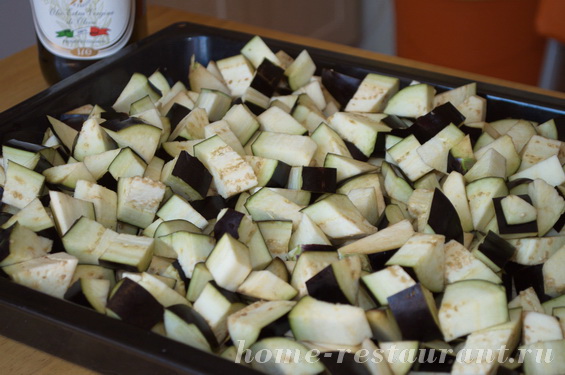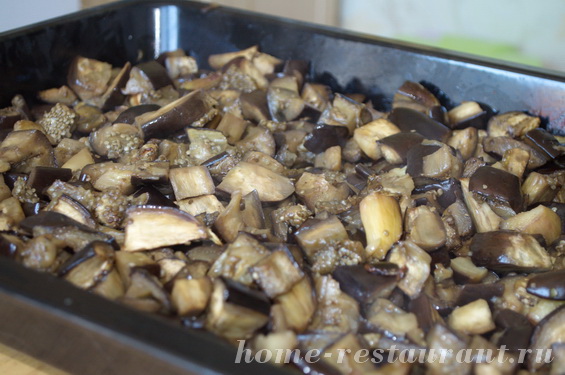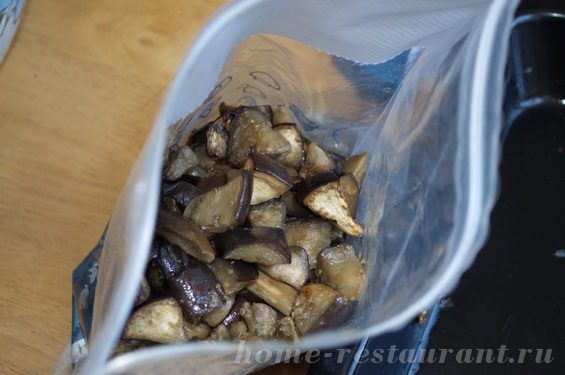Until we got a freezer, I didn’t even know that eggplants could be frozen. When I started reading recipes and methods on the Internet, only one thing was clear: eggplants can be frozen only after heat treatment. They can be pre-cooked, fried, or baked. Although there were some cooks who advised freezing eggplants raw.
In ready-made dishes, eggplants frozen raw turn out rubbery and not tasty, so you should absolutely not freeze raw eggplants.
For myself, I chose the baking method followed by freezing. It’s very convenient: I cut up the eggplants, put them in the oven, stirred them a couple of times and that’s it. There is no need to stand near the frying pan and constantly turn them over and add a new portion.
When baking eggplants in the oven, a minimal amount of oil is used than if we were frying them in a frying pan.
In addition, baked eggplants are much healthier than fried ones, but you already know that.
I use these frozen eggplants to prepare sautes, stews, various casseroles, make marinated eggplants with bell peppers, eggplant caviar, and also add to pizza and pasta.
To prepare it in winter, I make several batches in slices.
So the process itself, how to freeze eggplants for the winter:
The whole process comes down to preparation: wash the eggplants, peel them, and cut them into 1.5-2 cm pieces. There is no need to salt or rinse, the eggplants are not bitter and very tasty.
Pour a little olive oil onto a baking sheet (you can use any vegetable oil) and add the eggplants.

Place in the oven preheated to 180 degrees for about 1 hour. Don't forget to stir the eggplants several times so that they bake evenly.
Let the finished eggplants cool.

Place in freezer boxes or vacuum bags. For myself, I determined a convenient volume of 500 grams. This is the number of eggplants that is convenient to use at one time.

That's all, we put the eggplants in the freezer to wait for winter




